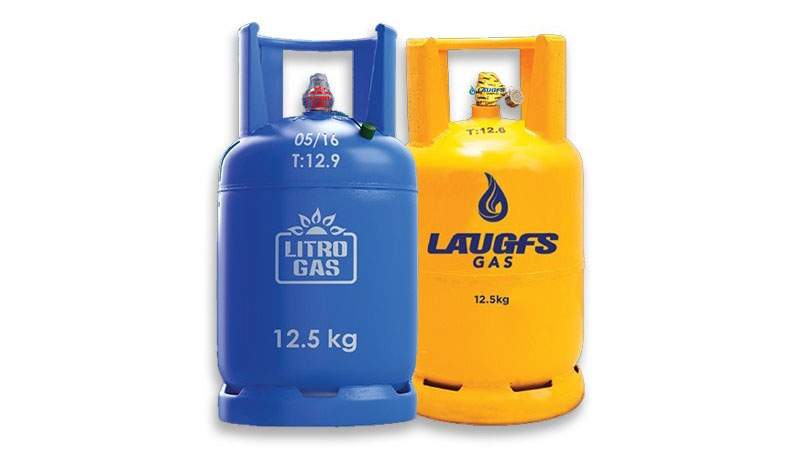It will have to be quality assured and affixed with a special seal that is easily recognizable before it is given to the consumer.
These are new guidelines provided by the presidential committee inquiring into the recent fires and explosions connected to gas cylinders.
The quality assessment will have to be carried out by the Sri Lanka Standards Institute (SLSI), Consumer Protection Authority, Industrial Technology Institute and the Sri Lanka Pratheethana Mandalaya.
In a statement released yesterday with findings and recommendations, the Committee said there had been 458 incidents all over the country between 1st January and 5th December this year which they had considered. As a part of their inquiry, they had inspected several places where the incidents happened including the main gas suppliers who had been called before them.
The Committee found that one reason for the explosions was because gas leaks were going undetected since no odour was emanating. They said that from the incidents reported, the use of low- grade regulators, tubes, hose clips and dilapidated gas cookers was the second reason.
They are carrying out a further scientific assessment to see if there is a link between the explosions and a change in the composition of the gas in the cylinder.
It had been agreed during discussions with gas suppliers that in future the requisite quantity of Ethyl Mercaptan, an additive which gives out an odour, will be included to alert consumers of a gas leak. The Committee said this will do away with the need for consumers to use unsafe methods to check leaks.
To arrive at their findings, the Committee collated data for between the 1st of January and 5th of December 2021. From the 458 incidents they had looked at there had been 28 incidents between the 1st of January and 28th of November 2021. But this number had risen exponentially to 430 incidents in the five days between the 29th of November and 5th of December. The highest so far – 142 incidents- were registered on 3rd December. The Committee records indicate that between the 29th and 5th there were 20 incidents linked to a damaged tube, 06 incidents because of damage to the regulator, 174 incidents because of the gas cooker exploding or its glass shattering, 03 incidents because of high pressure and 227 incidents where the gas had leaked. In contrast, between 1st January and 28th November there had been 01 incident because of a damaged gas cylinder, 03 incidents each because of damage to the tube and regulator, 04 incidents because of a faulty cooker and 17 incidents as a result of a gas leak.
The Committee had observed a reduction in the number of daily incidents after consumers had stopped using poor quality accessories and started using those of a right standard. They recommend the purchase of accessories that meet the quality of the SLSI and gas cookers from a trusted vendor.
They said they came to these conclusions after studying the composition and pressure of the gas that was imported to the country in the past two years.
The eight member committee which was appointed at the end of last month by President Gotabaya Rajapakse is chaired by Professor Shantha Walpola from the University of Moratuwa and includes Senior Deputy Inspector General Deshabandu Tennakoon, Professor Ajith De Alwis from the University of Moratuwa, Professor W D W Jayathilaka from the University of Sri Jayewardenepura, Professor Pradeep Jayaweera from the University of Sri Jayewardenepura, Professor Narayana Sirimuthu, Commissioner of the Sri Lanka Inventors Commission, Dr Sudarshana Somasiri the Additional Director General of Technical Services at the Industrial Technology Institute and Sujeewa Mahagama the Senior Deputy Director of the Sri Lanka Standards Institute.





